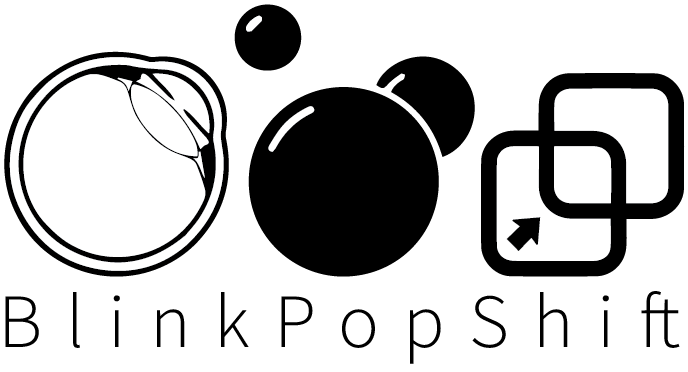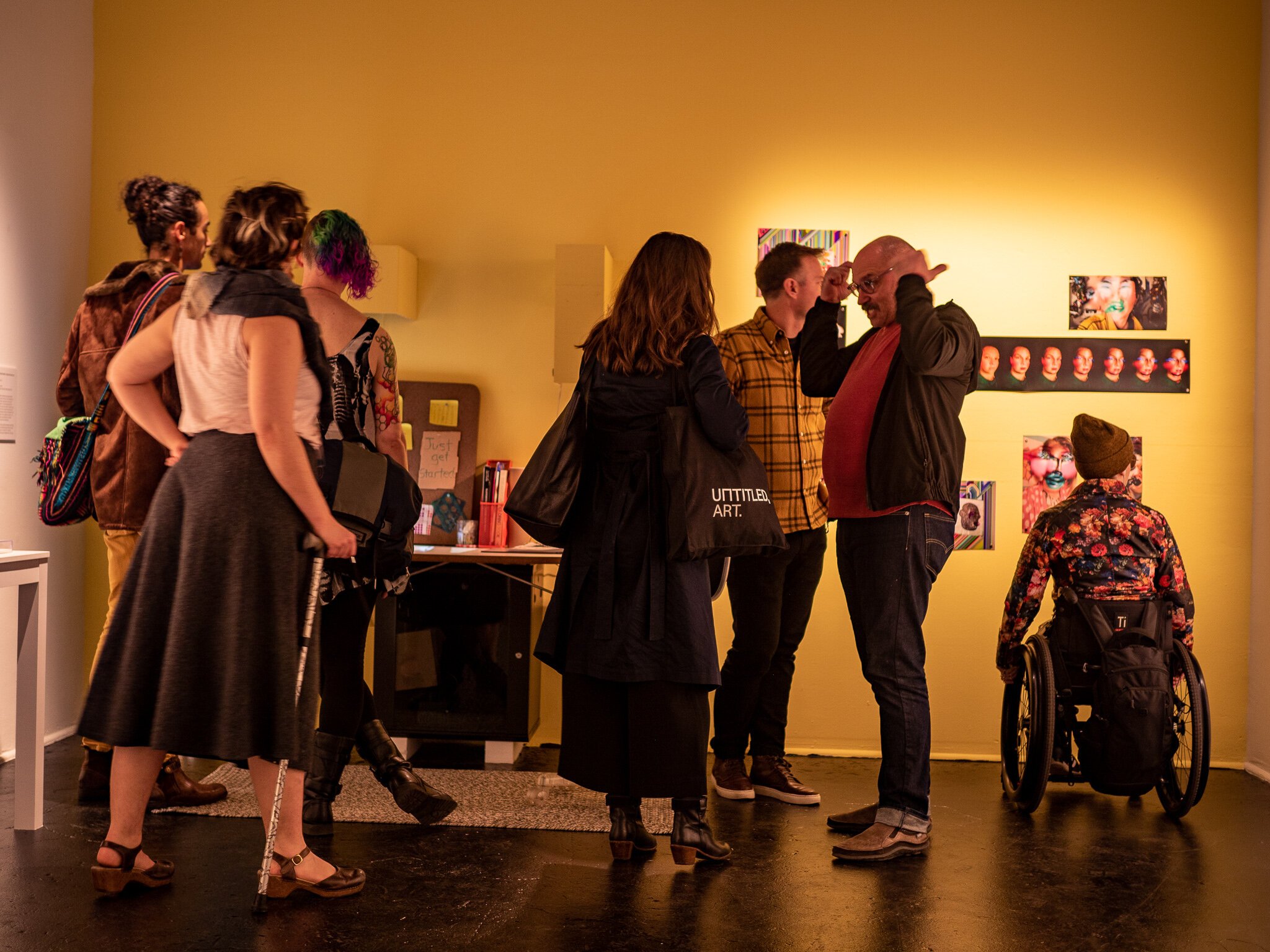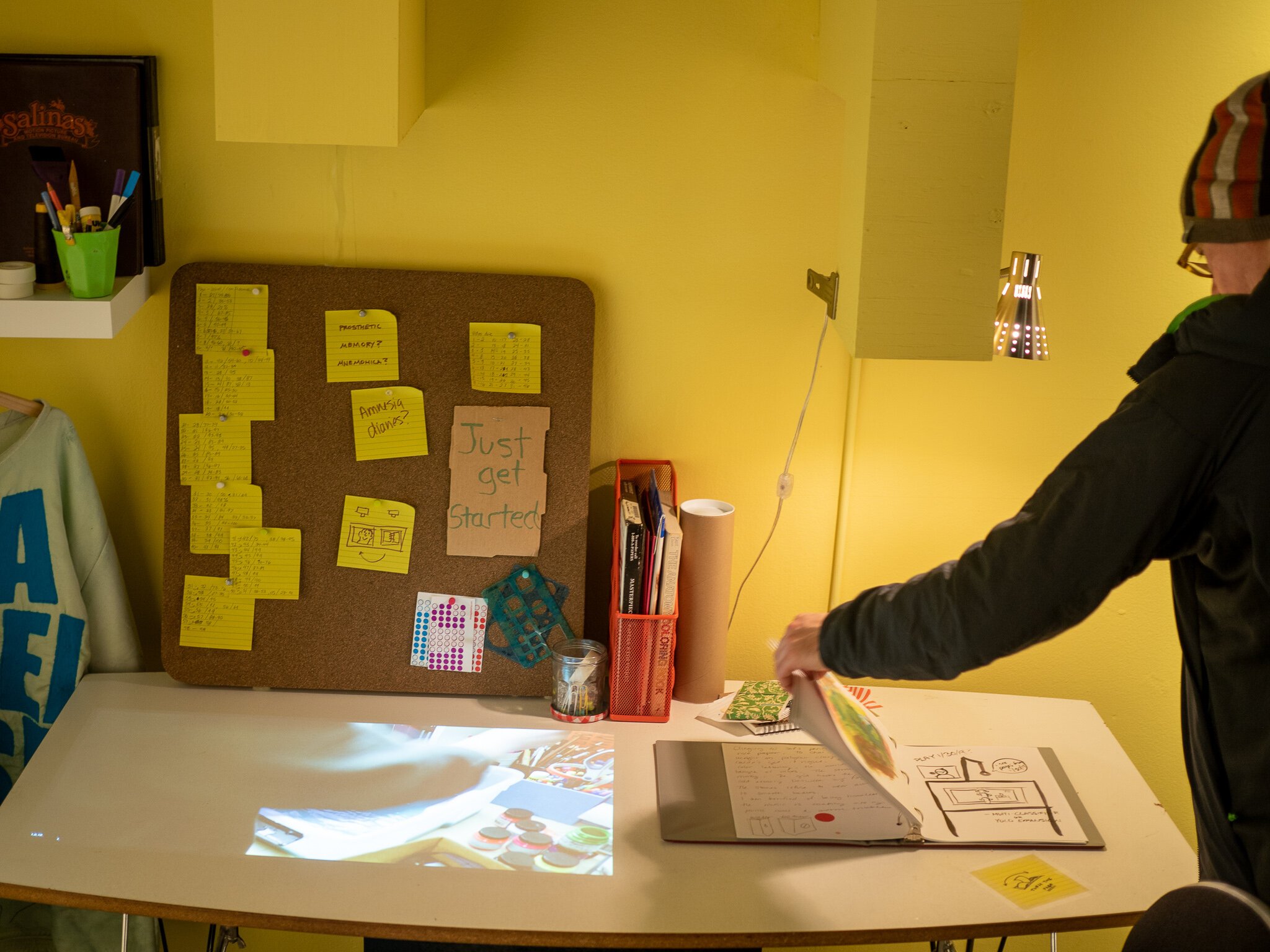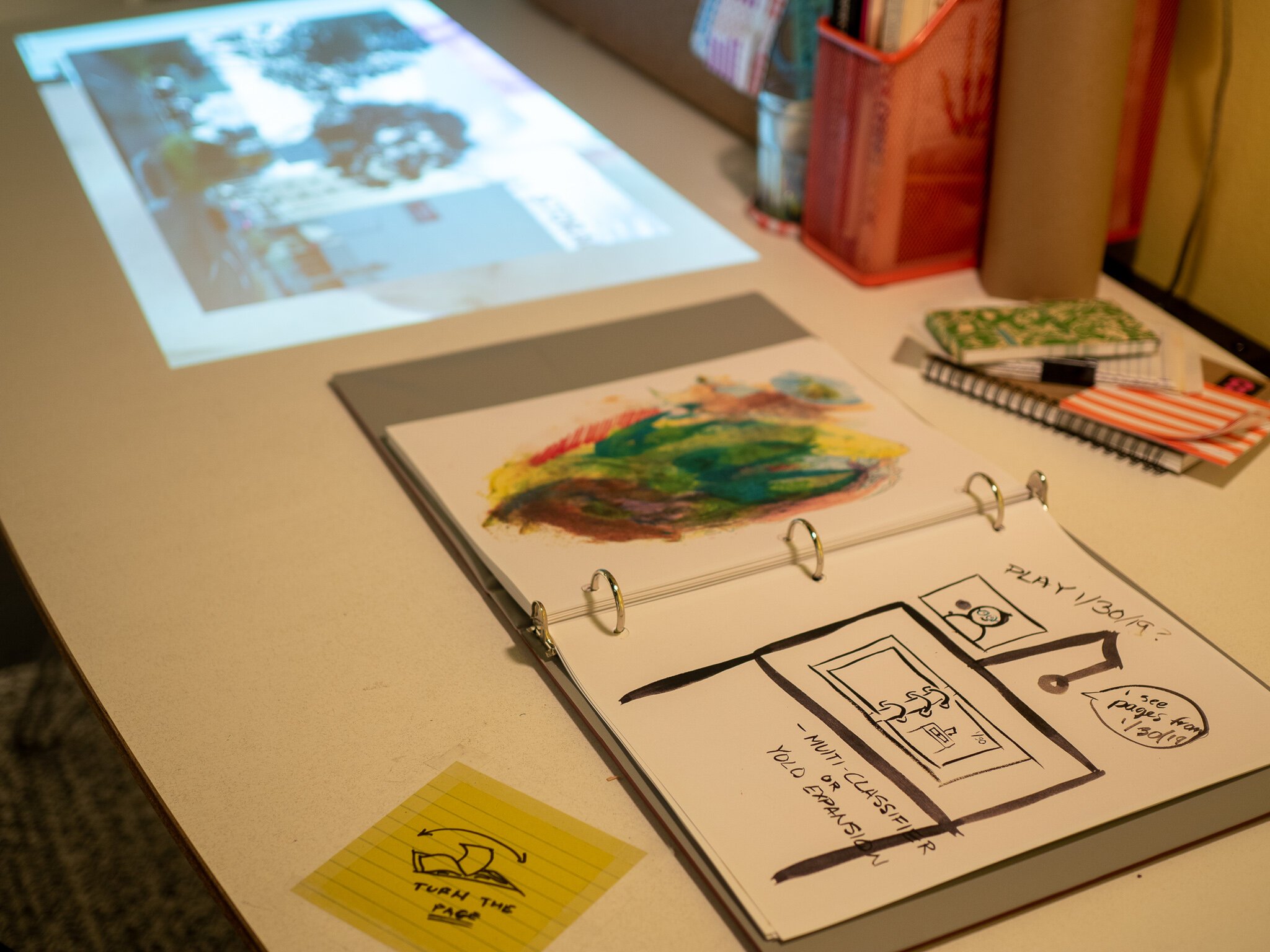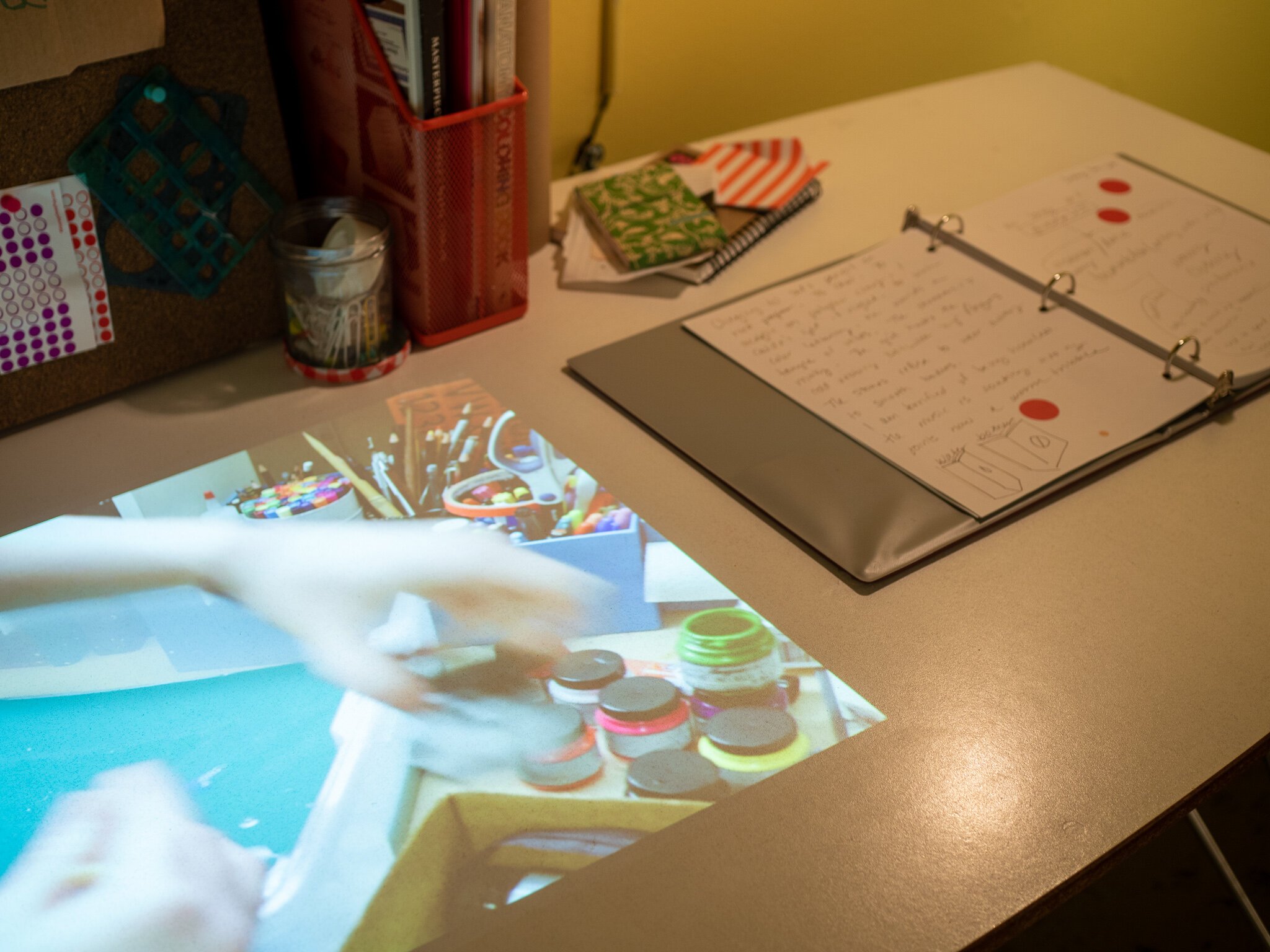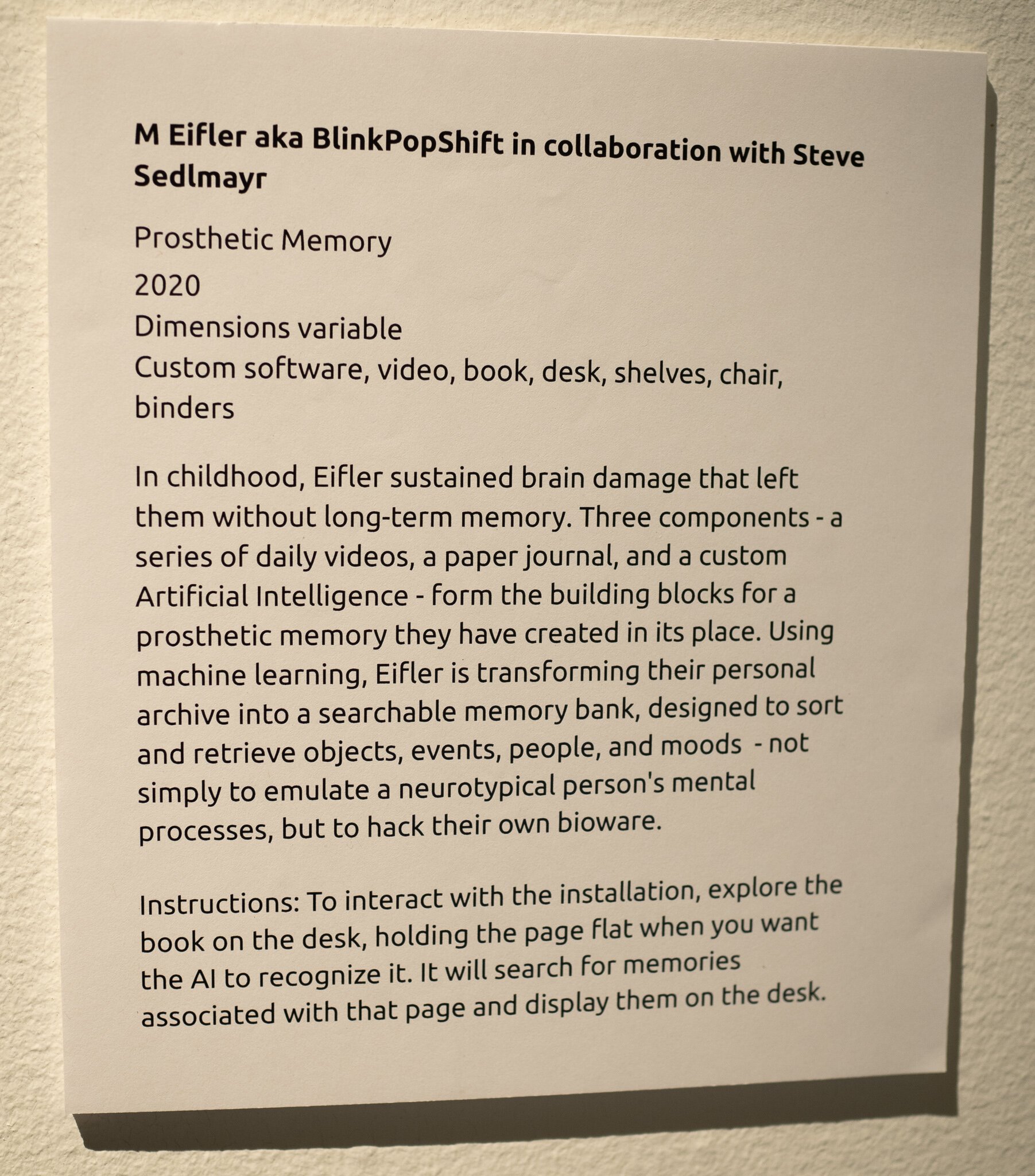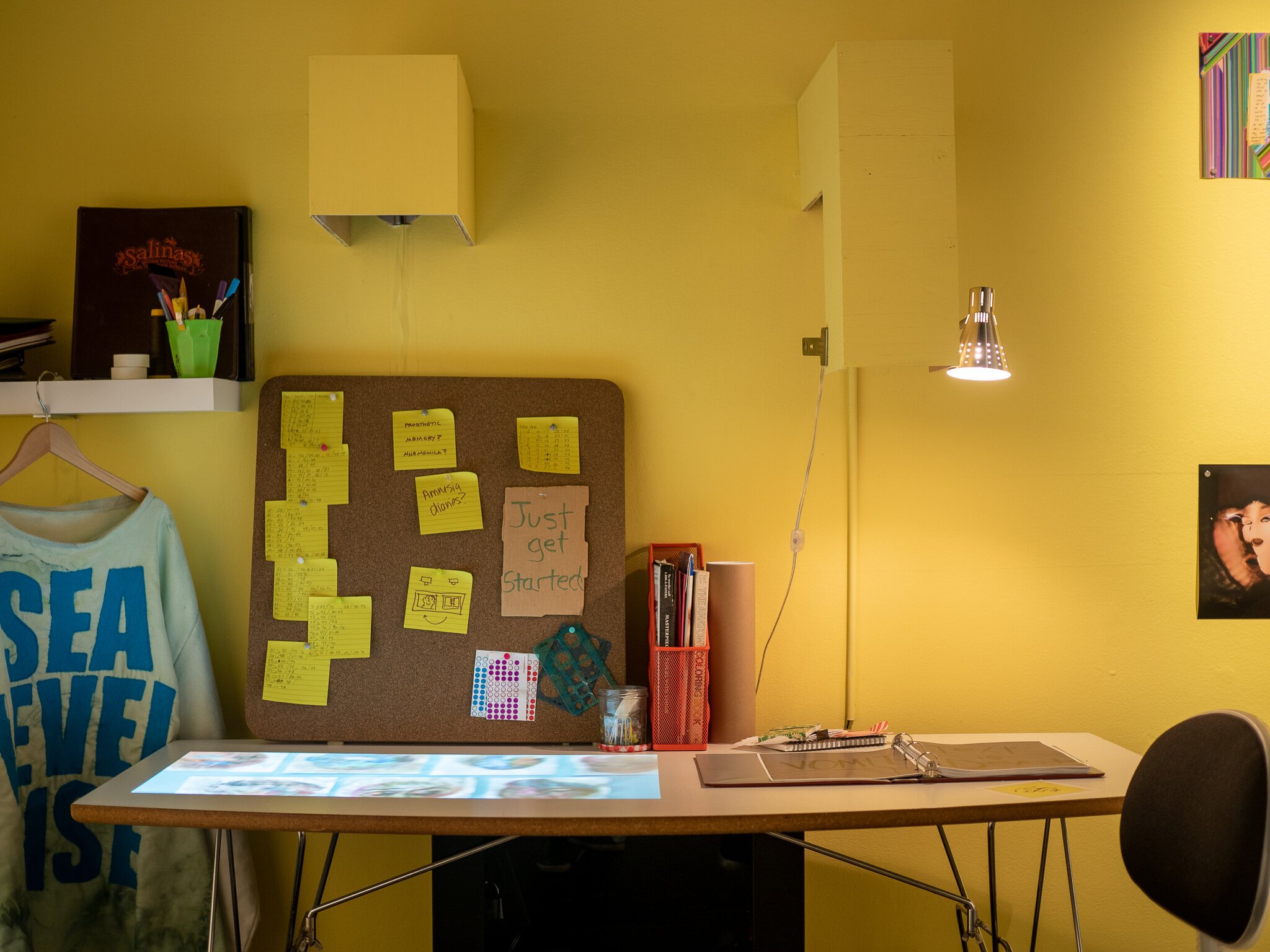Prosthetic Memory is an ongoing experiment in self-augmentation combining handmade journals, daily videos, and a custom AI. With the journal laying flat on a desk a camera captures its pages. The AI compares this feed to its model, determines which page is showing, and projects an associated video memory on the desk nearby. Created to replace the artist's long term memory which was damaged by a childhood brain injury, Prosthetic Memory explores questions like:
-When memories are external, mediated, and public what is the difference between how they are experienced by their creator and an audience?
-Do our assumptions, fears, and uses for AI change when data and machine learning models are created by individuals and families at personal, instead of corporate, scale?
-Given our increasing exposure to algorithmic interventions, how do our identities and perceptions shift when we see ourselves and others through that lens?
The first iteration of Prosthetic Memory, captured in the documentation provided, created a bridge between the physical and virtual components of the memory. In upcoming iterations an age-malleable recreation (deep fake) of the artist will appear on a screen above the notebook, reading from its pages, and, using NLP and sentiment analysis, pointing the user to other pages and videos with similar events or feelings.
Version 1.0 was first exhibited at the Recoding CripTech show at SOMA arts in 2020.
The project was awarded a STARTS Prize 2020 Honorary Mention.
While AI was a hot topic in the art and wider world as we slid into a new decade, it was often conceptualized as distant, strange and uncontrollable. Prosthetic Memory makes it extremely intimate. It is, to quote mathemusician Vi Hart "a chunk of myself I’ve externalized and personified as “other” in order to experiment with my perspective and my desires."
This project was first exhibited at the Recoding CripTech show at SOMA arts in 2020 and awarded a STARTS Prize 2020 Honorary Mention.
While AI was a hot topic in the art and wider world as we slid into a new decade, it was often conceptualized as distant, strange and uncontrollable. Prosthetic Memory makes it extremely intimate. It is, to quote mathemusician Vi Hart "a chunk of myself I’ve externalized and personified as “other” in order to experiment with my perspective and my desires."
